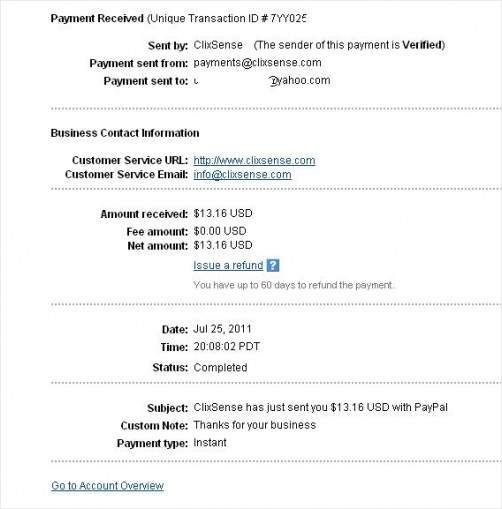CONTROLLING YOUR ANGER
One of the major roadblocks to strong relationships, both at home and at work, is the inability to effectively manage one's emotions. Of all the emotional, psychological and physical responses we experience in life, anger is perhaps the most challenging to process and control on a consistent basis.
How you choose to respond to your anger will make a difference in the quality of your relationships, your physical and emotional well being and your effectiveness in bringing about positive and constructive change in your life. Here is a list of practical tips you can use to help manage your anger more effectively.
1. Understand What Anger Is
Anger is a natural, God-designed emotional and physiological response to negative or threatening circumstances in life. When you believe that you have been treated unfairly or harshly, or when you experience frustration associated with an unmet need or goal, your mind and body prepare for action. It is this emotional and physiological response that we call anger. Anger has the potential to help us protect ourselves or others and can serve as a catalyst to bring about needed change. However, its relative value is largely determined by how we choose to respond to it. Anger is referred to as a "secondary emotion". This simply means that it is an extension of the primary emotion of frustration.
Everyone experiences some degree of frustration on a daily basis whether associated with not being able to fit into your favorite blue jeans or the person who just pulled out in front of you on the road. The good news is that most people can keep their frustration from escalating into anger, but for some it's not so easy.
Hurt and fear are two other primary emotions that often accompany anger. Anger is often experienced and intensified when these other emotions are minimized or ignored. Consequently, effective anger management involves learning how to identify and express hurt and fear in a healthy fashion. [Keep in mind that the goal is not necessarily to eliminate anger, but rather to process and express it constructively.]
2. Control Your Initial Response
The emotional and physical response triggered by a real or perceived offense or threat typically gives way to feelings of anger that can range from mild agitation to violent rage. The greater the sense of hurt, fear and frustration, the greater the intensity of your anger. It is always important to remember that your initial or "automatic" response to anger may not be the most constructive. You need to pay attention to your words and actions so that they don't become a damaging expression of your pain.
Postponing your angry reaction by as little as ten to twenty seconds can mean the difference between a good and bad outcome. During this time you will want to take several deep breaths and consciously tell yourself to "slow down" and to "respond" instead of "react". A response is characterized by thinking before you act, considering how your action will impact others, and imagining a positive outcome. A reaction is "knee jerk" in nature and evidenced by thoughtless action with little concern for the outcome except to relieve the tension brought on by the anger.
It's important to note that recent research challenges the once widely held belief in the value of letting one's anger out through the release of physical energy, e.g., hitting a pillow or pushing a tree. It is now believed that this form of "catharsis" can actually reinforce the expression of hostility and aggression, which may increase the likelihood of a similar and even more intense reaction in the future.
3. Acknowledge Your Anger and Its Source
Go ahead and say it: "I am very angry for being falsely accused, for being criticized, for being treated poorly or unfairly, for experiencing fear or hurt, etc." Admitting to yourself, and, at times, to those around you, that you are feeling angry is one of the keys to managing your emotion.
Simply saying out loud that you are angry can help decrease the intensity of your feelings. When we fail to acknowledge our anger we run the risk of holding it in until it overflows or begins to destroy us physically, spiritually and emotionally. Keep in mind that feelings that are buried alive do not die!
4. Tell Yourself the Truth
Here are some objective facts to remember when feeling angry:
"I have been seriously and unjustly treated or hurt. To feel angry about that is normal, but to control my response is in my best interest."
"To respond to my anger irrationally or aggressively will not serve any positive purpose and could actually create greater pain and problems for myself and others."
"When I choose to ignore or stuff my anger now I run the risk of acting it out later which will likely hurt myself and others in the process."
"I am only responsible for how I express my anger, not for how someone may choose to react to it."
Practicing rational self-talk is critically important to managing anger well. Following an angry reaction, make an effort to identify and examine the self-talk you engaged in while acting out your anger. Common irrational and destructive beliefs may include:
"No one is going to treat me that way and get away with it."
"The only way to really get someone to change or to understand what you want is by getting really angry at them."
"People will think they can take advantage of me if I don't express my anger toward them."
"If I don't get angry they will think I'm weak or try to control me."
5. Limit Your Exposure to the Things That Trigger Your Anger
Repeated exposure to stressful images, thoughts and situations can intensify your emotional response. If you find that your anger escalates when you watch the news, read the newspaper or talk about an offense or injustice with a friend or co-worker, then you may need to significantly reduce or eliminate these activities.
The same holds true if you are exposed to someone who intentionally, or unintentionally – we'll give them the benefit of the doubt for now - provokes you by being critical, blaming or mean. The best thing you can do is respectfully excuse yourself from the situation and only reengage when cooler heads prevail – especially yours. Finding alternative activities to engage in when frustrated or angry like exercising, calling a friend, reading a book, playing with your children, working around the house, or watching a funny movie can give you the break you need to avoid an emotional reaction and regain a healthy perspective.
6. Take Constructive Action
Effective anger management often includes engaging in constructive and creative forms of expression. Here are some examples of how you may want to respond to your anger.
- Identify the specifics of what you are angry about in order to prevent your anger from being displaced onto other issues and/or people.
- Regularly practice relaxation techniques.
- Refrain from reliving the experience and intensifying the emotion.
- Don't exaggerate the incident, stay rational.
- Express the emotions that often accompany anger, i.e., hurt, fear, sadness.
- Explore options related to problem solving. If your anger is related to an ongoing frustration or irritation take time to consider possible solutions to resolving the problem.
- Rehearse your response and focus on staying in control, speaking calmly and maintaining a slower pace of speech.
- Think before you speak and listen carefully.
- Use humor to diffuse your anger.
- Make sure that the timing is right for expressing your thoughts and feelings about an issue.
- Talk openly and honestly with friends, family and co-workers and make sure that the important ingredients of constructive dialogue are included.
One way to enhance your communication with others when it involves difficult issues or painful emotions is to use a communication template. The one outlined below involves the use of five simple sentences that will help you stay focused.
"When you…" - Make sure you stay objective at this point only stating the facts of the situation not your interpretation of them.
"I feel…" - Keep in mind that you must identify "feelings" at this point not simply more thoughts disguised by the words "I feel". Pay special attention to the temptation to use the phrase, "I feel that…" – you can't feel that.
"And then I…" - Here is your opportunity to describe your thoughts and actions associated with the situation. This will give others a window of understanding into how their actions impact you and why.
"What I need is…" - Don't be shy about sharing your needs, wants and desires. People tend to complain about what they don't want, but stop short of clearly identifying what they do want. Expressing your needs in this way can open up a dialogue about expectations that can either lead to agreement or the need for modification.
"What I'm willing to do is…" - This statement will give you the opportunity to communicate to the other person that moving forward in the relationship is not all about what they can do or change, but rather that it involves responsibility on your part as well.
Example:
"When you arrive home an hour later than you say you will I feel fearful, angry and disappointed. And then I think you don't care about me or our family and that you are inconsiderate. What I need is for you to come home closer to the time you say you will or for you to let me know that your plans have changed and why. What I'm willing to do is to be more understanding of your situation at work and to be more supportive of those times when things don't work out like you thought they would."
At first you will likely feel awkward and clumsy when using this form of dialogue, but in time it will become a natural way for you to communicate and an important part of your overall emotional management strategy.
7. Forgive the Offender
If the offense you have suffered is personal, unfair and deeply painful it is in your best interest to ultimately forgive the offender. Unfortunately, forgiveness is usually not what you want to think about when you have been mistreated and deeply hurt. Instead, you are likely to be more focused on some form of retaliation.
Unforgiveness often leads to bitterness and resentment, which means you will personally suffer more than you need to. It has been said that holding on to bitterness is analogous to you drinking poison expecting the other person to die.
A decision to not forgive your offender actually gives them power to continue hurting you long after the offense has been committed. Forgiveness is not easy, but it's very necessary for your own well being. A great book on the topic of forgiveness is "Forgive and Forget" by Lewis Smedes. It not only helps the reader understand the importance and value of forgiveness, but it provides assistance in walking you through the process.
Anger is not always easy to control, however, if you are willing to be honest with yourself and intentional about engaging in the process of change, you can be successful!
WFC6NPZURYNH



















